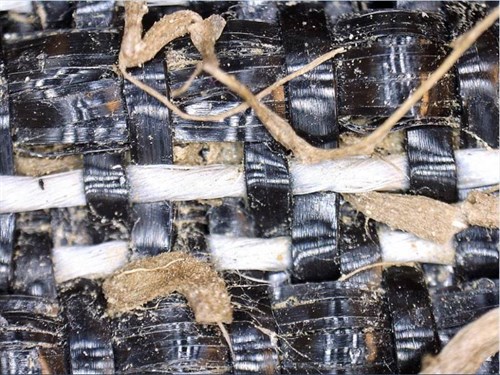Xiong Zhang
Frost heave and thaw weakening cause extensive damage to roads and airfields in Alaska. Available data and field observations at the Beaver Slide of the Dalton Highway have clearly indicated that H2Ri wicking fabric has successfully eliminated the frost boil problem in the test section.
At its current design, it is required that H2Ri must be exposed at the roadside so that water can be vaporized to generate a hydraulic gradient to maintain constant water transport. This caused two concerns: (1) the H2Ri will degrade due to sunlight exposure, (2) when water is vaporized at the road shoulder, salt left in the H2Ri can potentially clog the microscopic water transport channels and make H2Ri lose function, and (3) maintenance could be a problem. This proposed research is to investigate the possibility of a bio-wicking system to overcome the above two concerns.

For more information, please review the Project Information document.
